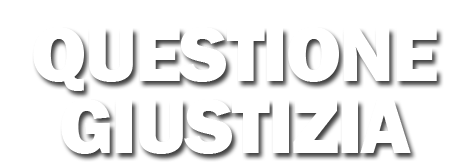The role of judicial associations during the constitutional crisis in Poland
I’d like to share with you my personal experience more than sharing a view of the theoretical aspect of the crisis of Rule of Law in Poland. Gualtiero Michelini already described the process of the collapse of Rule of Law in Poland perfectly. I can observe the same processes also in other countries of the EU and it all starts with the narrative of populist politicians. You can see it also in Italy, in the Netherlands and in other countries. What happened in 2015 in Poland, when the populist party won the elections, they used the narrative against elites and who is the better representative of elites than the judges. The first thing they did was taking control over the Constitutional Court, then the Prosecutor’s office, public television and radio. Yes, media was a very important factor in destroying the Rule of Law in Poland. Thanks to propaganda in public media, the politicians managed to prepare the background for taking control over further institutions, such as the Supreme Court, The Judicial Council, common courts.
So how did that happen, that despite all of this, after last parliamentary elections, Poland managed to turn for the democratic path again.
I think that there were two factors. One of this was the awakening of the civil society in Poland and the second was the EU factor.
As to the civil society, people in Poland, especially the so called “elites”, including judges , independent prosecutors, academics, independent journalists realized that the crucial thing is to have dialogue with society. The awareness of society is what can prevent taking control over the country by autocrats. As you can imagine it’s so easy to unleash a hate campaign against judges because. You have your now example - judges from Sicily dealing with migrant cases, who became the target of propaganda in government controlled media.
As judges we understood, that we need to leave our court room, our safe zone and we need to find the common language with citizens. So, for example, with Iustitia we decided to participate in rock festival, educating young people about their rights. Some members of our association take part in so called “legal cafés”, organised by us, or by local communities. These are meetings with people, where judges are asked about their work, or the role of Constitution, or just why the proceedings are so long.
We also understood, that solidarity is the power. That’s why we started cooperations not only with other branches of lawyers, but also with journalists, academics, artists, students, etc.
As to the European factor - we understood the real meaning of being the member of European Union - as the European community and as the European legal system.
As judges we used some European legal instruments in protecting RoL, such as preliminary questions. Some of us (f. Ex. Igor Tuleya) launched proceedings before the European Court of Human Rights in Strasbourg. These were also common people, who filed cases in ECHR questioning the Polish legal system changed by Law and Justice “reforms”.
We also felt incredible support from our European colleagues, it has really encouraged us to be stronger in our fight for independent judiciary in Poland.
I need also to underline the role of the European Commission, which decided to launch a few important infringement procedures against Poland, and also the art. 7 procedure. However, what previous speakers have already mentioned, the art. 7 procedure is not effective. The infringement procedures played much more important role, at least they delayed the process of total destruction of RoL in Poland.
However, I need to stress, that European Commission is a political body, sometimes taking more into consideration the current political need, then European Treaties and the verdicts delivered by the ECJ in Luxembourg. That’s why with MEDEL and other judicial organisations we decided to file a lawsuit against the Council and the Commission before the Court in Luxembourg, concerning failure to respect the ECJ’s verdicts when setting milestones for the Recovery Plan for Poland. We are still waiting for the result of the case.
Concluding this part, I’d like to once again stress the importance of people’s awareness of the importance of RoL. It should be in EU’s agenda to educate people, why it is so important to have independent courts, and that it is not for the benefit of judges, but for the sake of common people.
Only a few words on the current situation in Poland. It is very difficult to restore the Rule of Law in Poland because, first of all, we still have a president who is not willing to sign the new law, which would bring the European standards back into the polish system. He has repeated several times, that he doesn’t intend to back down from the changes he himself advocated.
At the same time, we can’t use the same methods used by the previous government – making changes without the legal grounds. What the current MoJ is trying to do, is to reform the whole system step by step. Make some changes by supplementing existing procedures with additional elements. For example, in case of courts presidents, according to the current law, it is discretionary decision of the MoJ to appoint the president. But despite there is no such procedure at the moment, judges organise assembles in particular courts, electing candidates for the court presidents in secret ballot. Then the MoJ appoints the one, who was elected judges for presidents in particular courts.
Nevertheless, the process is difficult, but together with other judges and civil society we believe, that finally the RoL will prevail. We are not going to take democracy for granted, and we will watch the politicians, no matter what option they represent.

